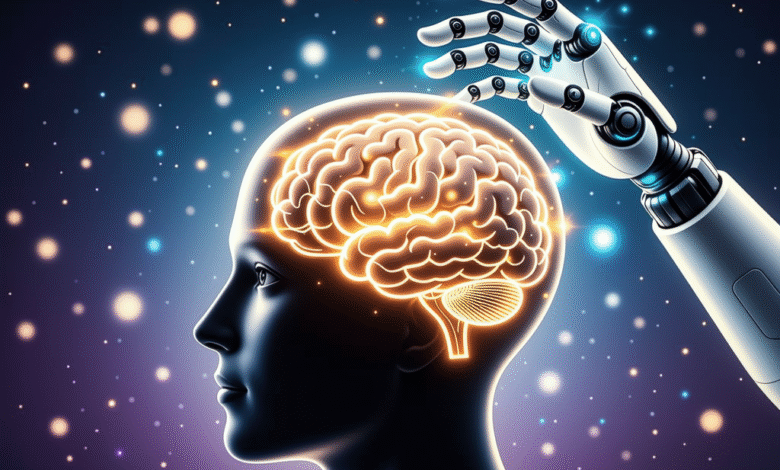Digital Doctors: Can AI Truly Show Empathy?

▼ Summary
– AI tools are increasingly used for mental health diagnosis and screening, with nearly half of reviewed studies focusing on this application.
– AI-powered conversational agents can significantly reduce symptoms of depression and distress, though many current systems are rule-based rather than generative AI.
– Generative AI cannot replicate human empathy as it lacks embodied emotional intelligence, lived experience, and moral judgment.
– All three studies emphasize that AI should serve as a supplementary tool with human oversight rather than replacing trained clinicians.
– Successful AI deployment requires ethical frameworks that prioritize privacy, user safety, and integration with clinical workflows.
The integration of artificial intelligence into mental healthcare is reshaping how support is delivered, offering new tools for diagnosis, therapy, and ongoing patient management. While AI-driven platforms demonstrate remarkable capabilities in screening and intervention, the question of whether machines can genuinely empathize remains central to ethical and practical discussions.
Recent peer-reviewed research provides valuable insights into this evolving field. A systematic review published in JMIR Mental Health categorizes generative AI applications into three functional areas: diagnosis and assessment, therapeutic tools, and clinician support. This review also introduces an ethical framework named GenAI4MH, designed to promote responsible implementation. Another scoping review maps AI mental health interventions across five phases, including screening, treatment, follow-up, clinical education, and population-level prevention. A third review examines ethical considerations, concluding that while generative AI shows promise, it should serve as a supplementary resource rather than a replacement for human clinicians.
AI is already making significant contributions in mental health diagnostics and screening. Tools powered by natural language processing and machine learning can detect conditions like depression and anxiety, and some even analyze social media language to assess risk levels. Approximately 47% of studies in one review focused on this diagnostic application, highlighting its growing importance.
Therapeutic interventions are another area where AI demonstrates value. Chatbot-based therapy, examined across multiple controlled trials, has been shown to reduce symptoms of depression and psychological distress. While many early systems operated on rule-based logic rather than generative AI, newer large language model-driven chatbots offer more dynamic interactions, though not without risks such as privacy concerns or potential emotional harm if responses are inaccurate.
AI also supports post-treatment monitoring through tools like digital mood journals, smartphone sensors, and emotion recognition algorithms. These technologies help track patient progress and identify signs of relapse, offering continuous support outside traditional clinical settings.
For clinicians, generative AI serves as an administrative and creative aid, summarizing session notes, triaging new patients, and generating educational materials. This allows professionals to focus more on direct patient care while leveraging technology for efficiency.
But when it comes to empathy, AI faces inherent limitations. Empathy is deeply relational, rooted in shared human experience and emotional intelligence, qualities machines do not possess. Ethical reviews emphasize that while AI can simulate empathetic tone and mirror emotions, it cannot replicate genuine human connection. Trust, a cornerstone of therapeutic relationships, requires moral judgment and contextual understanding that AI currently lacks.
Industry leaders like Dr. Koen Kas, CEO of Healthskouts, acknowledge the transformative potential of digital health tools. His work involves cataloging global digital health resources to improve accessibility and reduce friction in healthcare interactions. He envisions a future where AI enhances human-delivered care, creating moments of patient satisfaction without replacing the essential human touch.
A balanced path forward involves several key principles: human oversight must accompany AI tools, robust ethical frameworks must safeguard privacy and emotional safety, and technology should integrate seamlessly into clinical workflows without bypassing professional expertise. As Dr. Kas notes, digital strategy should focus on enhancing care delivery rather than replacing it.
AI chatbots and generative tools can broaden access to mental health resources, provide early support, and reduce administrative burdens. They can simulate empathy well enough to offer comfort and bridge gaps in care availability. However, true empathy remains a human attribute. For AI to play a responsible role in mental healthcare, it must operate in partnership with clinicians, supporting emotional healing without mistaking simulation for authentic connection.